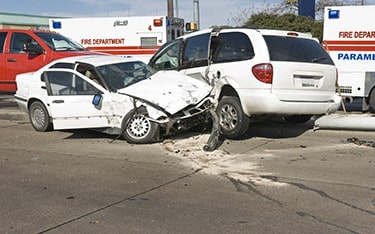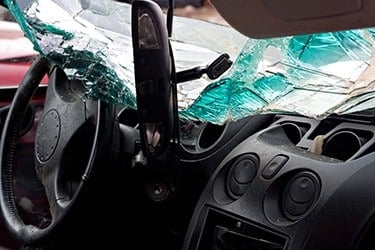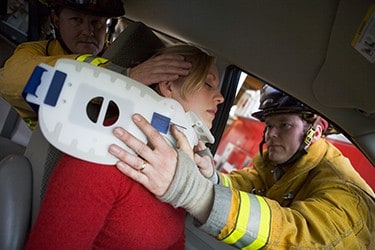Do You Need Auto Insurance to Buy a Car?

There’s a lot to think about when you’re setting out to buy a car, but have you ever thought about whether you need auto insurance to be able to buy a car?
You don’t technically need auto insurance to buy a car, but as every state has at least a minimum auto insurance requirement before you are allowed to drive on public roads you will need insurance to drive your new vehicle away from the dealership on a public road.
Of course, that’s not the end of the story by any means, so here I’m going to cover the main things you have to consider when it comes to buying a car and the potential auto insurance implications you need to know about.
Will a dealer refuse to sell you a car if you don’t have insurance?
No dealer is going to refuse to sell you a vehicle if you don’t have insurance, but the majority of them won’t let you drive the vehicle away from the lot that they’ve just sold you if you don’t have proof that you’re adequately insured.
Although there’s no specific requirement in law that dealers need to make sure customers have insurance before they drive away in their new cars, in today’s incredibly litigious society it’s going to be part of their due diligence policy to make sure they don’t get sued if you have an accident driving away from the lot without insurance cover.
Can the dealer help with insurance?
If you have any idea how much money there is to be made selling insurance, you probably already know the answer. Yes, most of the time, a dealer will be only too willing to help you get the insurance you need to drive away in your new ride because it could mean extra commission for them. On top of that, if they do have a policy of not letting customers drive away without insurance it can make the whole process go smoother if they are on top of as many parts of the sales process as possible.
Because auto insurance is such an incredibly competitive market, most dealers probably won’t get involved in trying to sell you a full-blown 12-month policy. They know they’re probably not going to be able to compete on price with big online insurance companies and comparison sites, but many of them will partner with big insurance companies to provide temporary insurance to get you on your way.

Temporary insurance policies
Most dealerships will offer some sort of temporary insurance to help smooth the car sales process and get customers on their way with as few hitches as possible. These temporary policies can last for up to a month, but they can be for as little as one day in some cases.
These convenient policies are often free, and that’s because the insurance company sees them as a great introduction that could lead to the customer taking out a full policy with them.
If you’re buying in a bit of a rush and you don’t have time to sort out your full policy, using one of these policies is a quick, easy and convenient way of doing things. But don’t let the fun of having a new car to drive distract you from sorting out the proper auto insurance before your temporary policy expires.
Do you need insurance to test drive a car?
When you go to a dealership to test drive a car you’re going to be covered by the dealership’s insurance as long as you have a driving license. In the past, I have known some dealers to try getting customers to provide their own insurance, but if a dealer tries that on you something is wrong behind the scenes and you should probably go somewhere else.
I once totaled my demo car returning from a finance meeting, but as I was covered by the insurance of the dealership I worked for I assumed everything would be fine. However, although I was covered, I later found out the dealership didn’t get any money from the insurance to fix or replace the car. That’s because the excess on the policy was over a quarter of a million dollars to keep the cost of the policy down, so the dealership had to cover costs up to that amount.
The main point of the policy was to cover the business in case there was a claim by a third party, which could easily run into millions of dollars if someone was injured in an accident with a vehicle at the dealership. If a dealer got customers to cover themselves for test drives, in the event of an accident they’d then be able to get paid for the damage they wouldn’t get paid for on their own policy due to the huge excess.
Long-term test drives may be different
The way we buy cars and therefore the way dealers sell them is changing out of all recognition these days thanks to the internet, so test drives that are longer than the usual 20 minutes up the road and back are now becoming increasingly common. Many dealers (and manufacturers) are now offering 24-hour or 48-hour test drives, and in these circumstances, they may well ask you to provide your own insurance cover.
There are a number of ways you can obtain this cover, and the best way is to contact your current auto insurer and ask them to cover you to test drive the dealer’s vehicle with your existing policy. Of course, if you don’t already have a car and insurance this isn’t going to be an option for you.
In those circumstances, you can go online and buy a short-term temporary policy to cover you for the duration of the test drive, but the dealer will probably already have a facility for this.
Bigger dealerships may even provide this temporary insurance free of charge, but it isn’t out of order for them to ask that you contribute. After all, they are lending you a vehicle that’s probably worth tens of thousands of dollars, so asking for a few bucks for you to insure yourself and the car probably isn’t too much to ask.

Don’t leave things to chance
As I spell out in this article you really should read called “Hidden Costs of Buying a Car – Even When Paying Cash”, your comprehensive car insurance can be a substantial cost to consider when it comes to buying a car or any sort of vehicle.
In some cases, the amount of money it’s going to cost to insure you and your new vehicle could be so high it might mean you have to think about buying something different instead.
You can buy some seriously powerful cars these days for a very reasonable amount of money that many of us can afford, especially with leasing, but the insurance cost could be as much or more than your lease payments.
You might be in your twenties and able to afford the lease on a Dodge Challenger with a 6.5-liter V-8 under the hood, but you might not be able to afford the payments to insure you for that beast, especially if you are in what the insurance company considers a high-risk occupation.
Look into how much it’s going to cost you to insure the vehicle you’re looking to buy before you even go for a test drive in one. There’s nothing worse than falling in love with a car you can afford to buy and then finding out you can’t afford to insure it.
What if you live where car insurance isn’t mandatory?
At the moment there are currently just two states that don’t have a legal requirement for drivers to have car insurance, so if you live in one of these states there’s nothing to worry about with buying a car and having auto insurance, right? Well, not exactly.
The two states in question are New Hampshire and Virginia, but it’s not a free-for-all in those states either. In Virginia you can legally drive without auto insurance, but only if you pay an annual fee of $500 to the state authorities.
This may allow you to drive on the roads of Virginia legally without insurance, but it offers you no cover whatsoever if you’re involved in an accident. If you’re involved in an accident and it turns out to be your fault you’re going to be liable for any costs, and you’re sure going to wish you had insurance then.
In New Hampshire, you don’t have to pay a fee to drive without insurance but you are responsible for damages resulting from an accident. It can cost you up to $50,000 for liability and $25,000 for damage to property. If you are in an accident and can’t pay you can then expect to have your license and registration suspended.

Proof of financial responsibility
Although every other state has a minimum auto insurance requirement for you to be able to drive on the roads legally, it doesn’t necessarily mean you need to have a normal insurance policy. Some states offer a bond option or proof of financial responsibility scheme in lieu of formal auto insurance.
The various schemes differ, but the basic principle is you pay an amount of money to purchase a bond, or a deposit in some states, for a set sum that will be used in the event of an accident. The individual state sets the amount, and the bond covers the expenses up to that amount. The money paid out by the bond then has to be replaced by the driver.
These schemes apply to the driver and not the vehicle, so the upside is they do allow you to drive any vehicle and be covered by the scheme. The big downside is that in the event of you being at fault for an accident, you are going to have to repay the full expenses, plus interest. Even if it still sounds like a great idea, I’d say you should ignore this option and get proper insurance instead.
You might be responsible for a fender-bender that only results in a few hundred dollars of vehicle damage, but what if the other driver claims for whiplash or another injury? You could then end up responsible for medical expenses, physiotherapy and legal fees that could run to many, many thousands of dollars. Then think about a more serious accident, and you should then see proper insurance as a necessity.
How to keep insurance costs down
The average cost of an annual auto insurance policy in the US is around $1,600, but what it costs you can vary massively. You might be able to get a policy for something like $750 from one insurer, but you could also quite easily pay three times that amount elsewhere.
Make sure you spend plenty of time shopping around for the right insurance policy as it could save you as much money as getting a good deal on the car you’re buying.
Comparison sites are a great resource for getting a good deal on car insurance, but make sure you are comparing like for like. Two policies could look alike but one costs a thousand dollars more than the other, but there may be some big differences in what they cover.
As well as shopping on price, make sure you know what kind of cover you’re getting for your money. Having an accident and finding out your cheap policy doesn’t offer the cover you need can be as bad as having no insurance at all in some cases.
